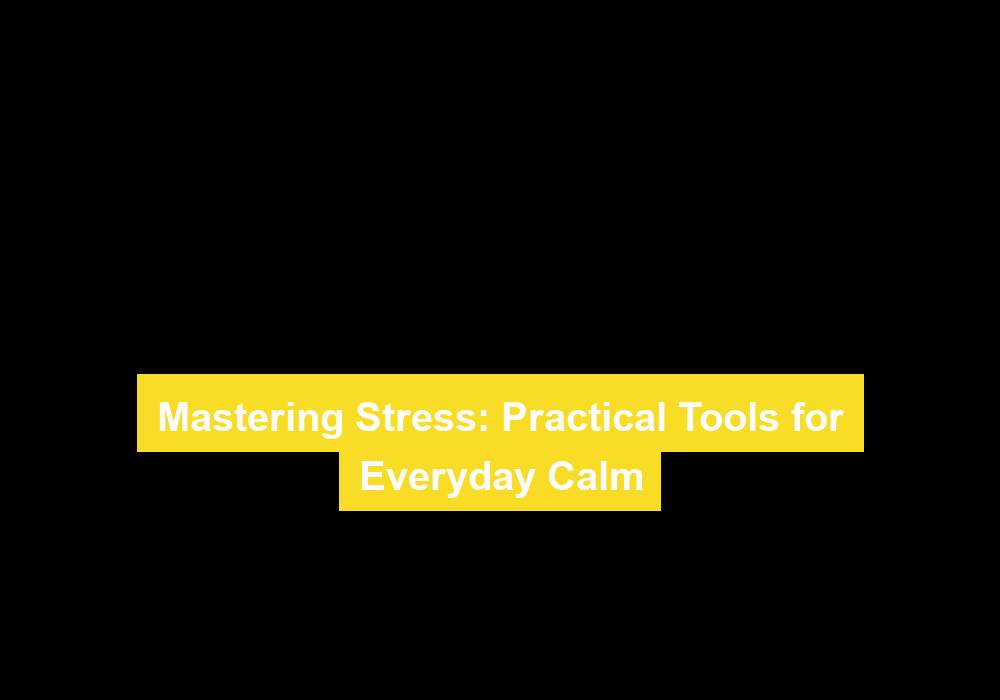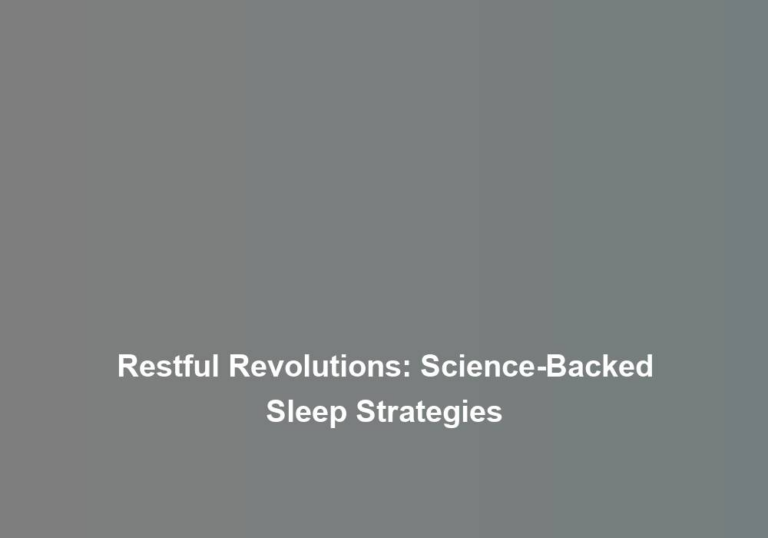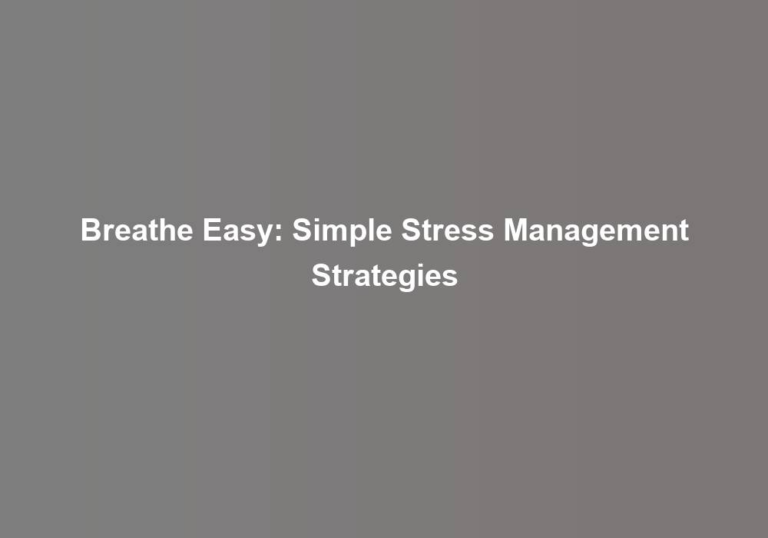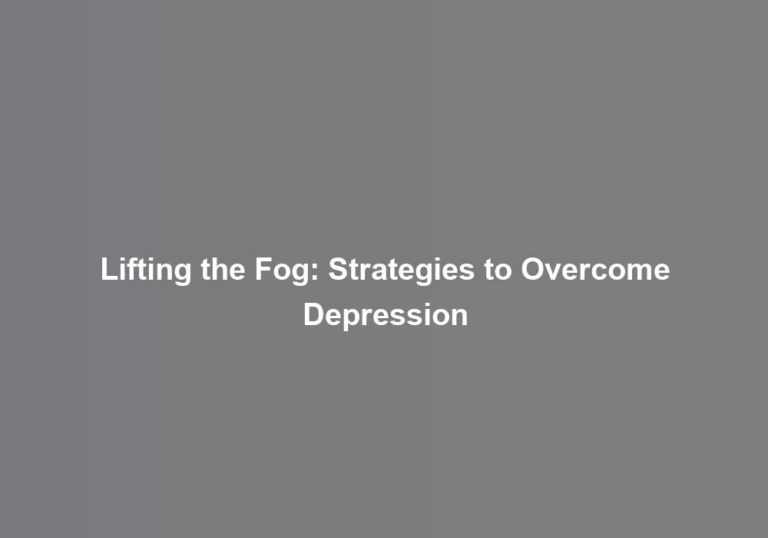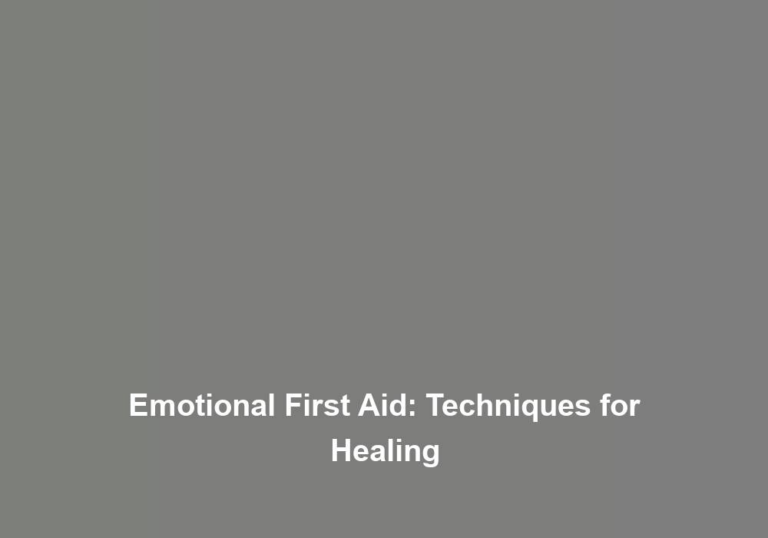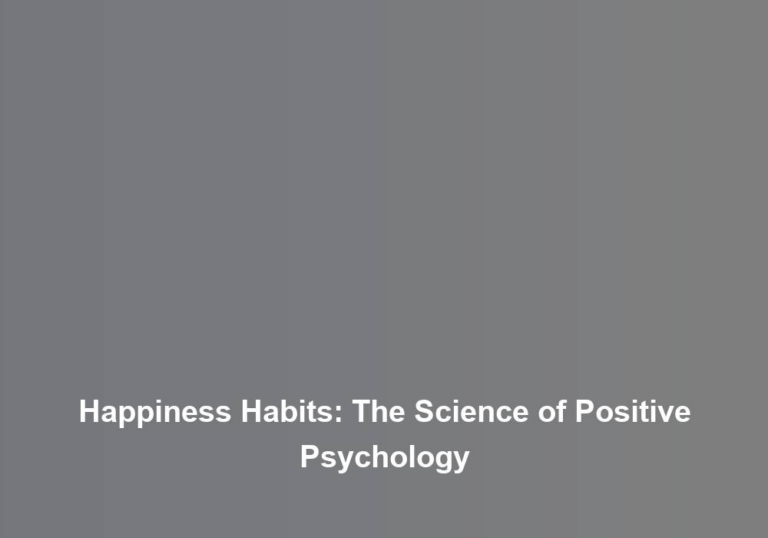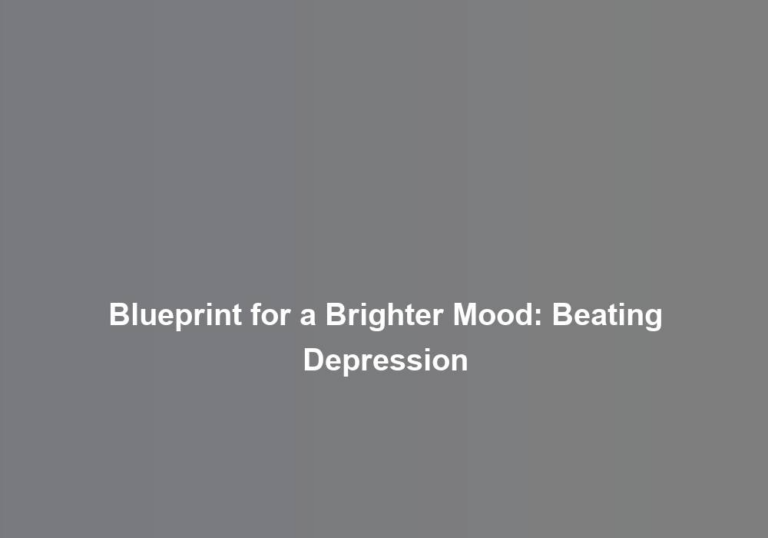Mastering Stress: Practical Tools for Everyday Calm
Feeling overwhelmed by the demands of modern life? Ever wonder if itG??s possible to navigate through the chaos with a sense of calm and composure? In todayG??s fast-paced world, finding practical tools to master stress and achieve everyday calm is a universal desire. Whether youG??re juggling work, family, or personal responsibilities, the quest for inner peace is a constant pursuit. But what if there were actionable strategies that could help you regain control and find balance amidst the chaos? ItG??s time to uncover the practical tools that can empower you to navigate the daily challenges with a renewed sense of calm.
Understanding Stress and Its Impact
Understanding stress and its impact on your daily life is crucial for developing effective coping strategies. Stress can trigger the release of stress hormones in your body, such as cortisol and adrenaline, which can have a profound impact on your physical and mental well-being. These hormones are part of your bodyG??s natural response to stress, preparing you to either fight the stressor or flee from it. However, when stress becomes chronic, the constant presence of these hormones can lead to a range of health issues, including anxiety, depression, and high blood pressure.
Emotional resilience plays a key role in how you respond to stress. It involves the ability to adapt to stressful situations, bounce back from adversity, and maintain a sense of equilibrium amidst lifeG??s challenges. Cultivating emotional resilience can help you navigate through stress more effectively, allowing you to remain calm and focused even in the face of adversity. Building emotional resilience involves developing healthy coping mechanisms, fostering strong social connections, and practicing self-care activities that promote mental and emotional well-being.
Mindfulness and Meditation Techniques
When it comes to managing stress, incorporating mindfulness and meditation techniques can make a significant difference in your overall well-being. By practicing breathing exercises for mindfulness, you can learn to stay present and calm in the midst of daily challenges. Additionally, exploring the benefits of different meditation techniques can help you find the approach that resonates most with you for achieving everyday calm.
Breathing Exercises for Mindfulness
Try incorporating deep, intentional breathing exercises into your daily routine to cultivate mindfulness and promote a sense of calm and relaxation. Deep breathing triggers the relaxation response, which helps counteract the stress response, promoting a balanced state of mind. By focusing on your breath, you strengthen the mind-body connection and enhance breath awareness. One effective technique is the 4-7-8 breath, where you inhale for 4 seconds, hold for 7 seconds, and exhale for 8 seconds. This method calms the nervous system and brings a sense of tranquility. Another approach is diaphragmatic breathing, which involves breathing deeply into the belly to reduce tension and increase oxygen flow. These simple exercises can be practiced anywhere, anytime, allowing you to center yourself and approach each day with a greater sense of ease and mindfulness.
Benefits of Meditation Techniques
Incorporating mindfulness and meditation techniques into your daily routine can further enhance the sense of calm and relaxation cultivated through breathing exercises. Mindfulness benefits include improved focus, reduced rumination, and enhanced self-awareness. Meditation benefits encompass stress reduction, increased emotional health, and enhanced self-esteem.
| Mindfulness Benefits | Meditation Benefits |
|---|---|
| Improved focus | Stress reduction |
| Reduced rumination | Increased emotional health |
| Enhanced self-awareness | Enhanced self-esteem |
Effective Time Management Strategies
To enhance your productivity and reduce stress, prioritize your tasks by using effective time management strategies. By prioritizing tasks, you can ensure that you focus on the most important ones, thereby reducing the feeling of being overwhelmed. Start by identifying the most critical tasks that need to be completed each day and then allocate time specifically for them. This approach will help you stay organized and on top of your responsibilities, leading to a greater sense of control and accomplishment.
Another crucial aspect of effective time management is setting boundaries. ItG??s essential to recognize when to say no to additional commitments that may hinder your ability to fulfill your existing responsibilities. By setting boundaries, you can protect your time and energy, allowing you to dedicate them to the tasks that truly matter. This practice also helps in avoiding burnout, as it prevents you from overextending yourself.
Moreover, consider utilizing time management tools such as digital calendars, to-do lists, or apps that can assist in organizing and prioritizing your tasks. These tools can serve as valuable resources in managing your time efficiently and ensuring that important deadlines are met.
Incorporating effective time management strategies into your daily routine can significantly reduce stress and increase your overall productivity. By prioritizing tasks and setting boundaries, you can create a more balanced and fulfilling lifestyle while achieving your goals.
The Power of Physical Activity
You know that feeling of calm and clarity that comes after a good workout? ThatG??s the power of physical activity at work. Movement and exercise have been shown to reduce stress and promote a sense of calmness, making them essential tools for managing everyday stress.
Movement and Stress
Engaging in regular physical activity can significantly reduce your stress levels and improve your overall sense of well-being. Mindful walking is a powerful way to incorporate movement into your daily routine while also practicing relaxation techniques. Taking a leisurely stroll in nature or even around your neighborhood can help you focus on the present moment, allowing you to let go of worries and stress. The gentle rhythm of walking can be meditative, calming your mind and reducing tension in your body. Additionally, integrating relaxation techniques such as deep breathing and gentle stretching into your physical activity can further enhance its stress-reducing benefits. By combining mindful walking with relaxation practices, you can harness the power of physical activity to promote a sense of calm and well-being in your daily life.
Exercise for Calmness
Incorporating regular physical activity into your daily routine can be a powerful tool for promoting calmness and reducing stress levels. Here are a few ways exercise can help you achieve a sense of calm:
-
Release Endorphins: Engaging in physical activity triggers the release of endorphins, which are chemicals in the brain that act as natural stress relievers.
-
Yoga Poses: Practicing yoga can help relax your body and mind, reducing tension and promoting a sense of calmness.
-
Enhance Sleep Quality: Regular exercise can improve the quality of your sleep, allowing you to wake up feeling more refreshed and ready to face the day.
-
Relaxation Techniques: Incorporating relaxation techniques such as deep breathing or mindfulness exercises into your workout routine can further enhance the calming effects of physical activity.
Nurturing Healthy Relationships
Nurturing healthy relationships involves cultivating open communication and mutual respect. Communication skills are vital for building strong connections. ItG??s about listening actively, expressing yourself clearly, and being empathetic to othersG?? feelings. By honing these skills, you can create an environment where both parties feel heard and understood. This fosters emotional support, allowing each person to feel valued and cared for.
Emotional support is the cornerstone of a healthy relationship. ItG??s about being there for each other during both the good and challenging times. Providing a listening ear, offering encouragement, and showing empathy are all crucial aspects of offering emotional support. Likewise, being able to communicate your own needs for support is equally important. ItG??s a two-way street that requires openness and vulnerability from both parties.
When you nurture healthy relationships, you create a sense of belonging. ItG??s about feeling accepted, understood, and appreciated for who you are. This sense of belonging provides a deep level of comfort and security that can mitigate the impact of stress in your life. By fostering healthy relationships, you build a support system that can help you navigate lifeG??s challenges with greater ease and resilience.
Creating a Calming Environment
To cultivate a calming environment, focus on decluttering your surroundings and creating a peaceful, uncluttered space. Here are some practical tips to help you create a sensory retreat for relaxation:
-
Declutter Your Space: Start by clearing out unnecessary items from your surroundings. A clutter-free environment can help reduce feelings of chaos and promote a sense of peace and tranquility.
-
Soft Lighting and Natural Elements: Incorporate soft, warm lighting and natural elements such as plants or natural materials to create a soothing atmosphere. Natural light and greenery can have a calming effect on your mind and body.
-
Aromatherapy: Consider using essential oils or scented candles to fill your space with calming scents. Lavender, chamomile, and jasmine are known for their relaxation-inducing properties.
-
Comfortable and Cozy Furnishings: Invest in comfortable, cozy furnishings such as soft blankets, cushions, and supportive seating. Creating a cozy nook where you can unwind and relax can greatly contribute to a calming environment.
Conclusion
So, next time stress comes knocking at your door, remember to arm yourself with these practical tools for everyday calm. Dive into the ocean of mindfulness, dance with time management, and embrace the power of physical activity. Nurture your relationships like a garden and create a calming environment that soothes your soul. With these tools in your arsenal, you can conquer stress and find peace in the chaos of everyday life.

